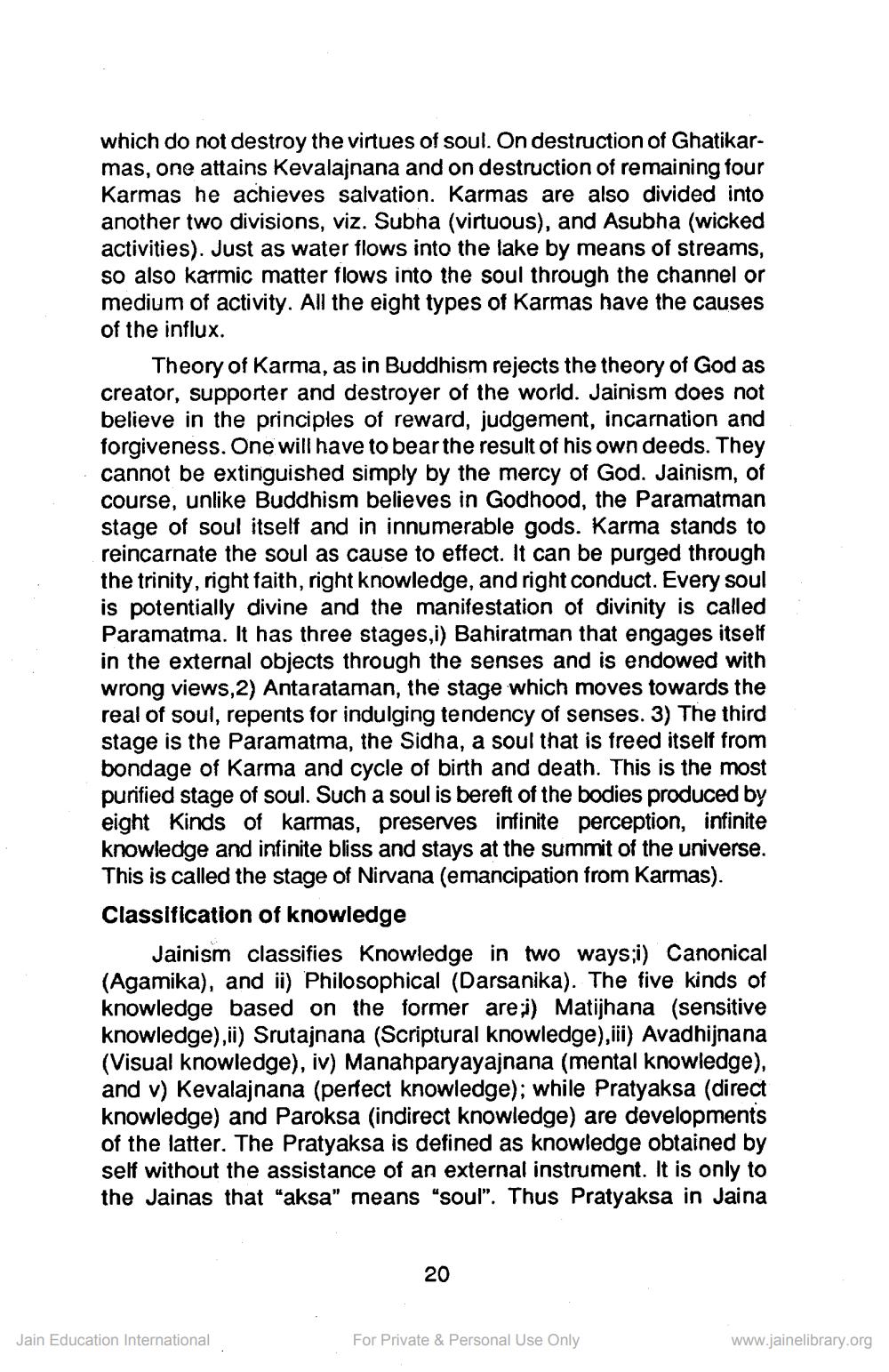________________
which do not destroy the virtues of soul. On destruction of Ghatikarmas, one attains Kevalajnana and on destruction of remaining four Karmas he achieves salvation. Karmas are also divided into another two divisions, viz. Subha (virtuous), and Asubha (wicked activities). Just as water flows into the lake by means of streams, so also karmic matter flows into the soul through the channel or medium of activity. All the eight types of Karmas have the causes of the influx.
Theory of Karma, as in Buddhism rejects the theory of God as creator, supporter and destroyer of the world. Jainism does not believe in the principles of reward, judgement, incarnation and forgiveness. One will have to bear the result of his own deeds. They cannot be extinguished simply by the mercy of God. Jainism, of course, unlike Buddhism believes in Godhood, the Paramatman stage of soul itself and in innumerable gods. Karma stands to reincarnate the soul as cause to effect. It can be purged through the trinity, right faith, right knowledge, and right conduct. Every soul is potentially divine and the manifestation of divinity is called Paramatma. It has three stages,i) Bahiratman that engages itself in the external objects through the senses and is endowed with wrong views, 2) Antarataman, the stage which moves towards the real of soul, repents for indulging tendency of senses. 3) The third stage is the Paramatma, the Sidha, a soul that is freed itself from bondage of Karma and cycle of birth and death. This is the most purified stage of soul. Such a soul is bereft of the bodies produced by eight Kinds of karmas, preserves infinite perception, infinite knowledge and infinite bliss and stays at the summit of the universe. This is called the stage of Nirvana (emancipation from Karmas). Classification of knowledge
Jainism classifies Knowledge in two ways;i) Canonical (Agamika), and ii) Philosophical (Darsanika). The five kinds of knowledge based on the former are;;) Matijhana (sensitive knowledge),ii) Srutajnana (Scriptural knowledge),iii) Avadhijnana (Visual knowledge), iv) Manahparyayajnana (mental knowledge), and v) Kevalajnana (perfect knowledge); while Pratyaksa (direct knowledge) and Paroksa (indirect knowledge) are developments of the latter. The Pratyaksa is defined as knowledge obtained by self without the assistance of an external instrument. It is only to the Jainas that "aksa" means "soul". Thus Pratyaksa in Jaina
20
Jain Education International
For Private & Personal Use Only
www.jainelibrary.org




